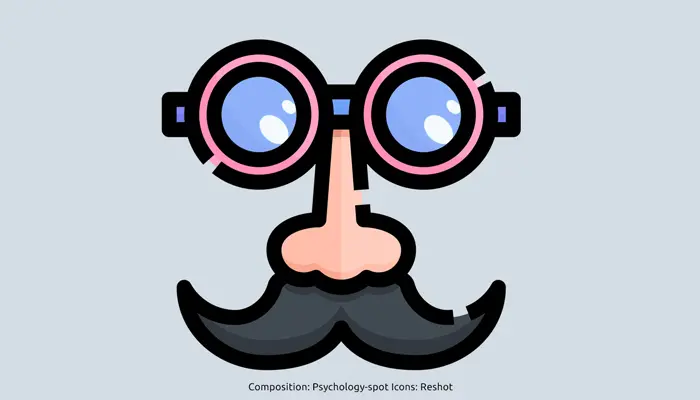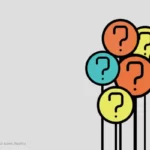
Prescription glasses or contact lenses? That is the dilemma faced by some 2.2 billion people who suffer from some type of visual problem – among which I am – according to data from the World Health Organization.
Prescription glasses are often the “default” option for those with refractive errors such as nearsightedness, farsightedness, astigmatism, and presbyopia, but they often come with some “undesirable effects.” It is easy to lose or forget them at home, as well as being a nuisance at the beach or when playing sports. They help us to see better, it is true, but they can also become an annoying obstacle. For this reason, more and more people are betting on contact lenses.
A survey of more than 35,000 people in the UK revealed that 8 out of 10 say they see better with contact lenses than with glasses. It is not an illusion. Contact lenses often improve field of vision and visual acuity because, by fitting to the eye, they deflect light directly into the eye, thus correcting the visual problem more accurately.
For this reason, those who have worn prescription glasses and begin to wear contact lenses often notice an improvement in vision. However, beyond correcting the visual problem, contact lenses also positively influence our quality of life and, ultimately, improve our psychological well-being.
More self-esteem and self-confidence
Self-esteem is a complex construct that depends on many factors, from our level of efficacy to the image we have formed of ourselves. However, it is the pillar on which our self-confidence rests. Without self-esteem, it’s hard to go far. As Maxwell Maltz wrote: “Low self-esteem is like driving through life with the parking brake on.”
Apparently “inconsequential” details such as the use of glasses or contact lenses can have a considerable impact on our self-esteem. In fact, several studies carried out in children, adolescents and young people revealed that the use of contact lenses is associated with greater self-esteem, compared to those who wear prescription glasses. These children and adolescents tend to have a more positive and favorable image of their physical appearance, sports skills and social interactions.
Unfortunately, children who wear prescription glasses are 35% more likely to be bullied. The use of glasses can make children feel different, so in stages such as adolescence and youth in which aesthetic appearance and social acceptance are key aspects, the use of contact lenses can help them gain the necessary confidence and security to better go through these phases.
Curiously, the effect of prescription glasses or contact lenses extends beyond the first decades of life. Research conducted in Pakistan, for example, revealed that more than 84% of adults reported greater self-confidence when wearing contact lenses and felt more comfortable in social settings.
Everything seems to indicate that it is a cross-cultural phenomenon since more than 80% of the British also state: “I feel more attractive”, “They give me more confidence” and “I look more natural” with contact lenses.
It’s not by chance. The self-esteem of most people usually suffers a blow when they look in the mirror with prescription glasses for the first time. That reaction is just as common in childhood, when they worry about how other children will see them, as it is in adulthood, when glasses become a constant reminder of aging or physical decline.
Obviously, a pair of prescription glasses won’t destroy our self-esteem, but it can negatively affect our perception of our physical appearance. Glasses become part of our new image, they become an essential glass through which we see the world, so we have to work psychologically to accept this change and incorporate it into our self-image.
With contact lenses, the impact is less since the look remains clear, we do not feel that a frame hides our features, so they become a more natural option to deal with vision loss that shields our self-esteem.
Less constraints and greater freedom to live
One of the biggest advantages of contact lenses is the freedom they provide. 89% of people agree that contact lenses allow them to “live more freely” and that “they have improved the quality of life”. 90% also acknowledge feeling more socially comfortable wearing contact lenses and 86% indicate that they work more easily.
Contact lenses reduce problems such as glare, double vision or fogging at the most inopportune moments. They have no reflections or distortions and improve peripheral vision as they move with the eye when looking in any direction.
Because of this, most people end up feeling more comfortable and safe in their day to day. That greater freedom makes different experiences much more rewarding, from an outdoor adventure to playing sports, which is why contact lenses ultimately improve the quality of life and, therefore, our psychological well-being.
With them we put an end to squinting myopic eyes to see something in the distance or attempts to stretch out the arm to the maximum extension in the supermarket to read the ingredients of a product or in the restaurant to decipher the menu. Those small everyday details that contact lenses make easier help us feel more confident.
We feel more self-sufficient, in addition to restoring our naturalness and spontaneity, giving us a renewed freedom to face life on the go, without having to constantly look for glasses or remember to take them in case we need them at some point.
Obviously, contact lenses are not a panacea. 18% of people report discomfort when using them or when taking them off. For this reason, it is not only important that they be recommended by an ophthalmologist or optometrist, but also to purchase them from professional opticians which guarantees quality products from leading brands to reduce the risk of suffering side effects caused by contact lenses in some cases.
Sources:
Aneeq, M. et. Al. (2022) The Impact of Contact Lenses on Quality of Life. Psychology and Behavioral Sciences; 11(4): 143-150.
Aldeen, S. et. Al. (2022) The Effect of Wearing Eyeglasses on the Perception of Attractiveness, Confidence, and Intelligence. Cureus; 14(3): e23542.
(2021) Beyond Vision Correction: The Real Impact of Contact Lens Wear on Patients. In: CooperVision.
(2019) La OMS presenta el primer Informe mundial sobre la visión. In: OMS.
Dias, L. et. Al. (2013) Myopia, contact lens use and self-esteem. Ophthalmic Physiol Opt; 33(5): 573–580.
Walline, J. et. Al. (2009) Randomized trial of the effect of contact lens wear on self-perception in children. Optom Vis Sci; 86(3): 222-232.
Walline, J. (2007) Benefits of Contact Lens Wear for Children and Teens. Eye & Contact Lens Science & Clinical Practice; 33(6 Pt 1): 317-321.
Terry, R. L. (1983) The effect of eyeglasses on self-esteem. J Am Optom Assoc;54(10): 947-949.



